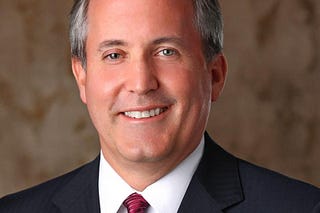A series of tweets posted by social media influencers in support of embattled Texas Attorney General Ken Paxton are the product of a paid social media campaign. In a thread posted to Twitter yesterday by Current Revolt, it was revealed that the social media marketing company Influenceable offered to pay social media influencers in its network $50 for “1 original tweet” in support of Paxton after his legal team filed a motion to quash and a motion for a bill of particulars in his impeachment proceedings.
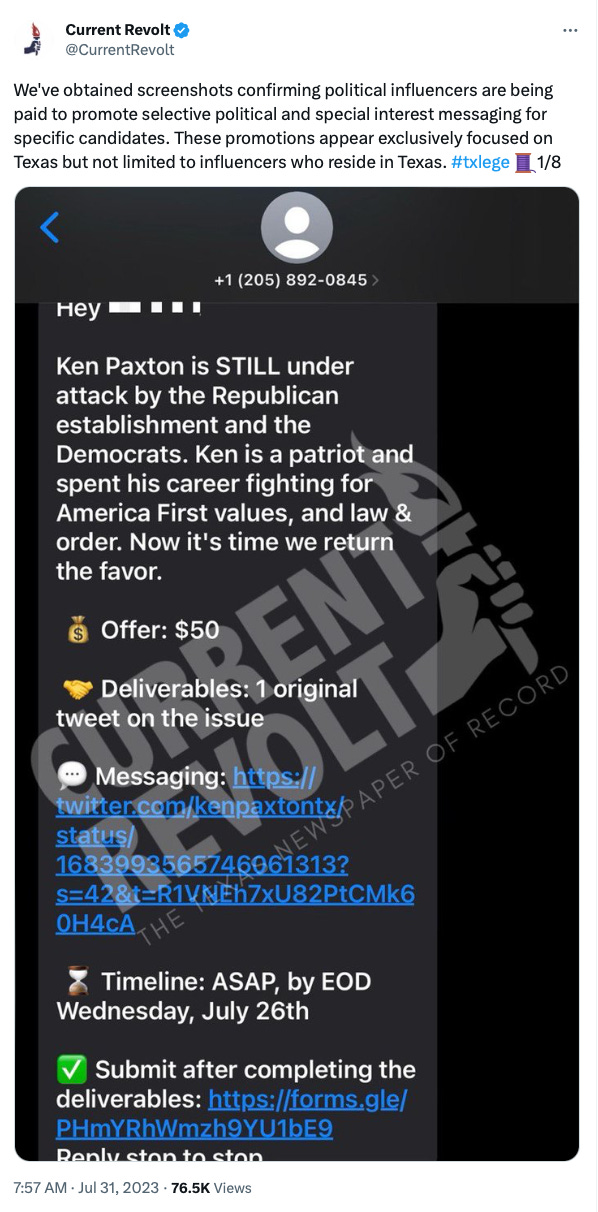
The Texas Voice has also learned that Influenceable also offered to pay $50 for social media influencers in its network to “retweet, like, and reply” to a tweet posted by Paxton on the evening of July 25 about the motions filed by his legal team.

Subscribe to The Texas Voice
Have every new edition of The Texas Voice sent direct to your inbox
In marketing materials obtained by The Texas Voice, Influenceable claims to have “cultivated the nation’s largest network of ‘Anti-Woke’ influencers that are engaged in digital activism” with over 300 influencers in its network.
According to campaign finance records on file with the Texas Ethics Commission, Influenceable was paid $18,000 by the Defend Texas Liberty political action committee on May 19, 2023. Several social media influencers in Influenceable’s network posted tweets opposing Paxton’s impeachment just days later. Defend Texas Liberty is primarily funded by businessmen Tim Dunn and Farris Wilks and is run by former State Representative Jonathan Stickland, who also owns the political consulting firm Pale Horse Strategies.
Influenceable’s business model also appears to be based, at least partly, on a lack of transparency surrounding the paid messages communicated by the personalities in its network. Influenceable’s marketing materials even go so far as to say, “Audiences don’t trust the platform, they trust the influencer – communicate to desired audiences using the right influencers without “sponsored” or advertising labels.

Some of the social media personalities featured in Influenceable’s marketing materials posted replies to Paxton’s tweet, which also elicited responses of thanks from Paxton’s account. These included Students for Trump founder Ryan Fournier and former Newsmax television host Grant Stinchfield.
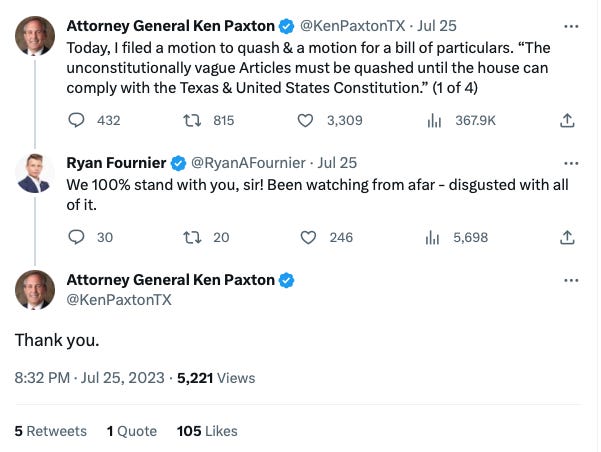
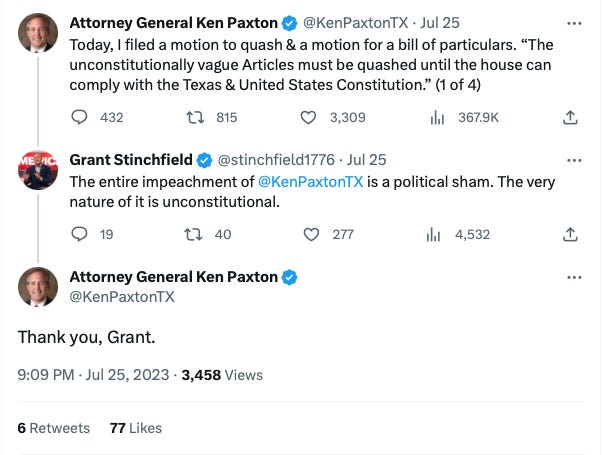
Blaze TV personalities Sara Gonzales and Chad Prather also posted responses to Paxton’s tweet. Gonzales and Prather also have ties to organizations with links to Defend Texas Liberty and Pale Horse Strategies, with Gonzales working with the Texas Family Project and Prather working with Texans for Strong Borders. Gonzales and Prather have also posted tweets that appear to be linked to other social media campaigns associated with Influenceable.
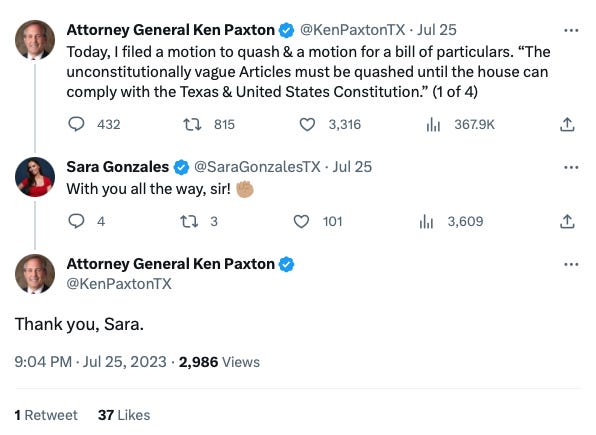
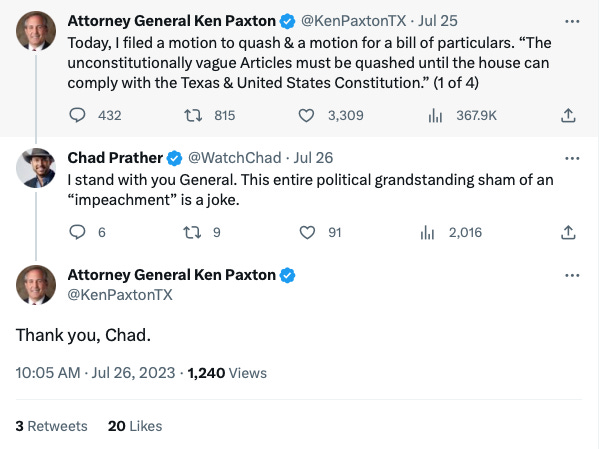
The paid tweets supporting Paxton may also violate Texas law. Section 255.001 of the Texas Election Code requires that “political advertising containing express advocacy” include a disclaimer that indicates that it is political advertising and the full name of the person that paid for the political advertising or the committee that authorized the political advertising.
The term “political advertising” is defined in Section 251.001(16) of the Texas Election Code as:
“a communication supporting or opposing a candidate for nomination or election to a public office or office of a political party, a political party, a public officer, or a measure that:
(A) in return for consideration, is published in a newspaper, magazine, or other periodical or is broadcast by radio or television; or
(B) appears:
(i) in a pamphlet, circular, flier, billboard or other sign, bumper sticker, or similar form of written communication; or
(ii) on an Internet website.”
In a commercial context, the Federal Trade Commission has made clear that social media influencers who have a business relationship with a brand they promote are to disclose that relationship. In a publication entitled “Disclosures 101 for Social Media Influencers“, the Federal Trade Commission states that influencers are to disclose when they have a “financial, employment, personal, or family relationship with a brand.”

